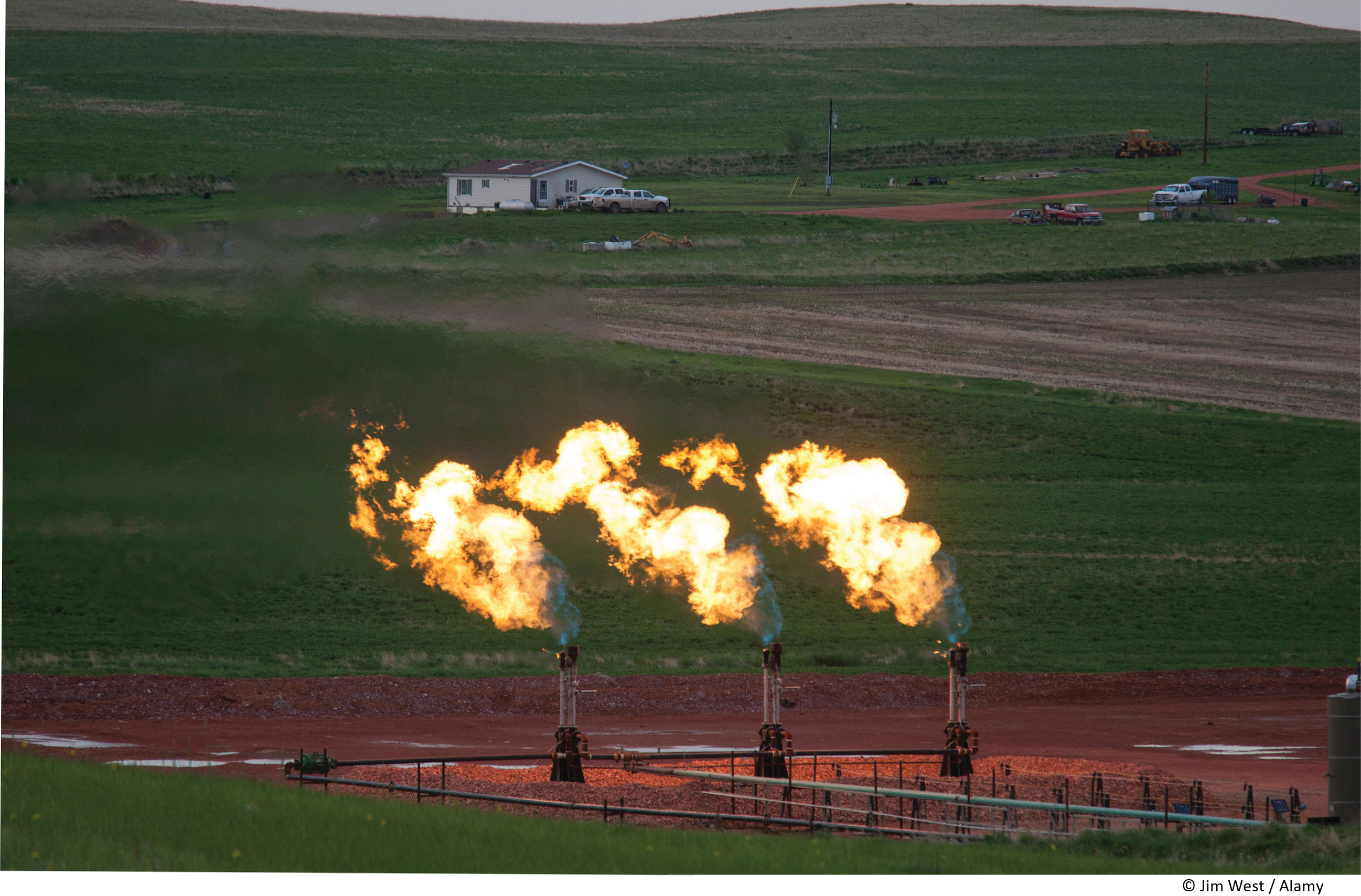Chapter Introduction
CHAPTER 19
OIL AND NATURAL GAS
THE BAKKEN OIL BOOM
Is fracking the path to energy independence?

CORE MESSAGE
Oil and natural gas are vital fuels for modern society and important raw materials for a wide range of products. However, environmental damage is caused at every stage of their acquisition and use. In addition, conventional supplies of oil and natural gas are becoming depleted. Untapped sources of these fossil fuels do exist but are more difficult and costly (economically and environmentally) to extract, especially some unconventional sources. We should weigh the pros and cons of pursuing these unconventional sources as we make decisions about how best to meet our energy needs.
AFTER READING THIS CHAPTER, YOU SHOULD BE ABLE TO ANSWER THE FOLLOWING GUIDING QUESTIONS
“It is as you imagine it: Vast. Open. Windy. Stark. Mostly flat. All but treeless. Above all, profoundly under-populated, so much so that you might, at times, suspect it is actually unpopulated. It is not. But it is heading there.”
So went the opening paragraph of a 2006 feature article in the New York Times Sunday Magazine about the demise of the prairie states in general and of North Dakota in particular. The entire region, it seemed, was suffering a mass exodus: houses and churches and schools and stores, all completely abandoned.
That was 2006. Less than a decade later, the same sleepy patch of country is in the middle of a modern-day gold rush—an oil boom, to be precise. Journalists today describe local grocery stores barely keeping shelves stocked, town movie theaters being so crowded that people are sitting in the aisles, and housing costs approaching those of the most expensive cities. Towns once home to 1,200 residents now claim 10 times as many. “With the way it is now,” Jeff Keller, a natural resource manager with the Army Corps of Engineers, told Pro Publica in 2012, “you’re getting to the crazy point.”